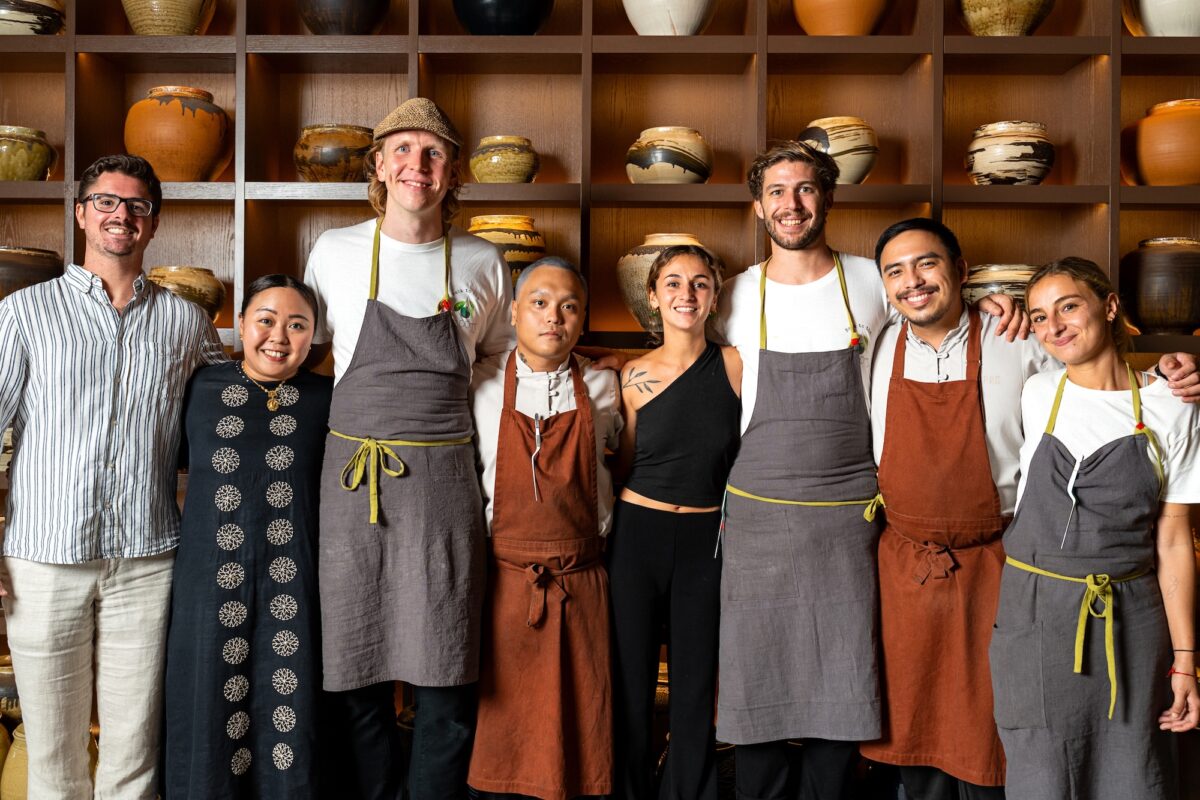
It was close to the end of the occupation of the Philippines by Japanese forces. Having heard that his parents Teodoro and Purificacion had been captured by Japanese soldiers and Filipino aides in their mountain hideout in Duero, Bohol, the young Jose Veloso Abueva, then 16, set out with two young cousins to look for them.
They sailed westward in an outrigger to neighboring seaside towns: Jagna, Garcia Hernandez, then finally Valencia. He found his parents sprawled on the grassy hillside on Balitbiton cliff, and recognized them from their skulls, soiled clothes and broken rosary.
“We put my parents’ remains in a box. As we sailed 25 kilometers east back to our hometown Duero, I still could not cry,” recalls Abueva.
“The so-called Liberation of the Philippines came too late for all of us, parents, and seven orphans of World War II.”
In his six-level home in a former mango orchard in Beverly Hills, Antipolo, which has been home to him and his wife Maria Socorro since 1969, one wall in the living room has adjacent narra panels carved by younger brother Billy (Napoleon), the national artist, documenting the Abueva family’s peripatetic years, from his roots in Cebu and Bohol (and his wife Coring’s Surigao and Manila), to his studies in Diliman and Michigan, and their years of stay in Hawaii, Tokyo, New York. Their grown-up children are Marie Lanelle, Jobert, Rosanna and Jonas.
Reforms
As President of the University of the Philippines (UP) from 1987-1993, Abueva introduced outstanding reforms in the state university and the national government. He stopped the practice of granting UP presidential discretion (PD), introduced the Socialized Tuition and Financial Assistance Program (STFAP, which is now very much in the news), and initiated the UP language policy to promote the use of Filipino, among others.

Having passed the torch to the next UP President, in 2000, Abueva and colleagues at UP founded Kalayaan College “to offer quality education to our youth, including those who are unable to enroll in UP because of its limited college quotas.”
Abueva notes, “In mature democracies and industrialized countries, many citizens readily join political parties as they join their professional and civic organizations.”
Thus, he points out, “It seems a paradox that, like most Filipino political scientists who teach the importance of political parties as a major form of participation in politics in a modern democracy, I did not join any political party from the time I began teaching political science in UP in 1950 until last year, 2012.
“Have we then failed to practice what we preach?” asks Abueva.
One other reason he sees why Filipinos in general do not join political parties is because the Civil Service law prohibits civil servants, including UP and other State and local government university faculty, from engaging in partisan political activities.
“The prohibition practically excludes some three million civil servants from joining political parties,” he noted.
It is interesting to note how Abueva became a Centrist Democrat. “I had long been an advocate of political reforms—including structural and institutional reforms involving amendments to our 1987 Constitution to help bring about an effective and inclusive democracy and a just and humane society.” For this, he works with the Citizens’ Movement for a Federal Philippines (CMFP), and served as Chair of the 2005 Consultative Commission on Charter Change.
Centrist Democracy
Centrist Democracy, Abueva says, “is inspired by the ideology of the Federal Republic of Germany’s political party, the Union of Christian Democacy, inspired by Chancellor Konrad Adenauer.
“I joined former environment and local government undersecretary Lito Lorenzana and Konrad-Adenauer-Stiftung (KAS) country representative Peter Koepingger when they started the Centrist Democratic Movement (CDM),” says Abueva.
CDM members eventually decided to set up the Centrist Democratic Party of the Philippines, Ang Partido ng Tunay na Demokrasya (CDP), which is now chaired by Lorenzana and has Cagayan de Oro Rep. Rufus Rodriguez as its president.
Asked about how he sees the party in the next elections, Abueva replies, “Although CDP was approved as a political party by the Comelec just a few days before the deadline for filing of candidacy in the last elections, we have been working hard to recruit more members and train them and our officers in various regions. We also supported three senatorial candidates: Sen. Koko Pimentel, Sen. Chiz Escudero and Bam Aquino.
“Having helped in founding CDM and CDP, we see ourselves planting the seed of a serious, modern political party in our troubled democracy,” Abueva says.
“We should not just criticize and complain about our weak democracy and backward country. We should do something concrete and constructive as serious and patriotic Filipinos who believe in democracy. We want CDP to be visible and a practical model of a modern political party; for our citizens to know and join in order to make a difference in our democratic political development.”
Actually, Abueva comes from a family of leaders and educators. His father, fondly called “Papa Doro,” was once elected Representative of the Third District of Bohol. He also served as Bohol Provincial Sheriff, and as provincial board member in the underground guerrilla government. His mother, Mama Nena, finished education at UP. She headed the women’s club, and Bohol’s campaign for national women’s suffrage in the late 1930s.
Abueva’s paternal grandfather, Manuel Abueva (“Capitan Awing”), was mayor of Duero and built the Duero Elementary School and the Municipal Waterworks System. His paternal grandmother Leocadia was a teacher and was called “Maestra Cadia.”
Lest people think that he is eventually running for an elective position, Abueva hastens to add, “As a political scientist and reform advocate, I volunteer my services in the training and organizational activities of the Centrist Democracy Political Institute (CDPI),” the political institute that trains, molds and mentors Centrist Democrats.
And really, there’s no stopping the still vigorous 85-year old Boholano former UP president and professor emeritus. He continues to champion the dignity of his fellow Filipinos in so many ways.













































